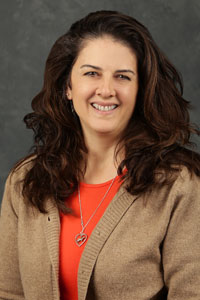The author and her husband, Duane, own and operate a 550-cow dairy in Cochranville, Pa.

There is a mountainous and intentional disruption, not just to the food chain but also to the agricultural farming supply chain. The ripple effect is reaching the corner of every farm as we see broken links in areas that we need to best care for our land and animals.
I have no intention of going deep into a geopolitical issue, picking sides, or trying to predict where we will be by the time this magazine issue prints. However, as a fellow farmer, the splintering in Ukraine has catapulted us into a desperate realization of how fragile our food, fuel, supplies, and farms have become.
This impacts our world. It is unthinkable to look at the fuel and supply prices and realize that the planting and harvesting seasons will be costly this year, but in the United States, we can anticipate having one. That stress is at a different level than what Ukrainian farmers are waking up to each morning.
Our son, who is a soldier, once told me that “everything about war is ugly.” After the past few months, that is not hard to comprehend. It is heart-wrenching to hear the stories of how farmers need to turn their focus from day-to-day operations to survival.
Another issue facing them is food security and farm security for their country. As we watch this play out, even though we are countries away, we can feel the impact this will have on their farms, on their animals, and their ability to feed each other, their neighbors, and the world.
I never realized the country of Ukraine had such a dynamic impact on agriculture. We quickly heard how their wheat production and sunflower oil are instrumental in sustaining their agricultural industry.
You may wonder, what does all this have to do with my dairy farm?
The answer is a lot, if you look over the fence posts and across the ocean.
I became more interested in farmers outside our border when I had the opportunity to travel and speak at the United Nations. When there, I talk about my dairy farm, the diversity of our farming practices and styles, and how much we care about the land and our animals.
One of the most enjoyable moments for me was meeting and conversing with fellow farmers from across the globe. The more farmers I talk to, the more I realize that yes, we are different in style and practice, but we are similar in passion, drive, and vision for feeding communities, large and small. We are important to each other, and it is increasingly valuable for farmers’ voices to be heard worldwide. It is critical for our future. Each one of us desires and deserves to thrive on our dairy farms.
Dairy farmers take the responsibility of feeding communities seriously. This is a core reason all of us are milking cows.
Food security sometimes smacks us in the face in big ways. We can all attest to the fact that our farms were traveling down an insecure path during the pandemic. It has not been too long ago that we can remember farmers dumping milk and how that impacted us. The long line of families at food banks was at an all-time high, and “food security” became a staple in our conversations.
Life can be hard. There is no doubt about that. Farmers know that firsthand. But we are tough, and during these crippling times we hang onto each other and the relationships that sustain us. Our farms keep us going and give us hope.
Duane is a great example of showing that optimism. Even though the glass of milk is half full, he will look at it as completely full. He carries a lot of confidence and vision for our dairy. I never want to take that for granted.
He recently had the opportunity to pray before the lunch at our Land O’Lakes Cooperative meeting, and during the prayer he mentioned the situation in Ukraine. He specifically prayed for the farmers in that area. It surprised him that when he got to that portion of the prayer, he got choked up and had to take a moment to regain his words.
The fact that he was emotional is not shocking or unlike us as farmers. This happens when we hear of our farming friends going through difficult times. We call to each other through the barriers of languages, the different farming styles, and the diverse management practices. Plain and simple, dairy farmers feel the pain of each other.
I am sure there will be a day that we can help them get their dairy industry back on track and once again become a secure food supply for their communities. I look forward to that privilege and opportunity. Even though we are farming in different parts of the globe, farmers have certain securities that are necessary to sustain our dairy farms.
May God bless every farmer in every part of this planet as we all strive to securely feed our families and our communities.







